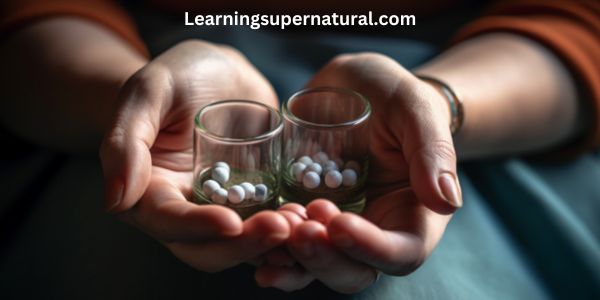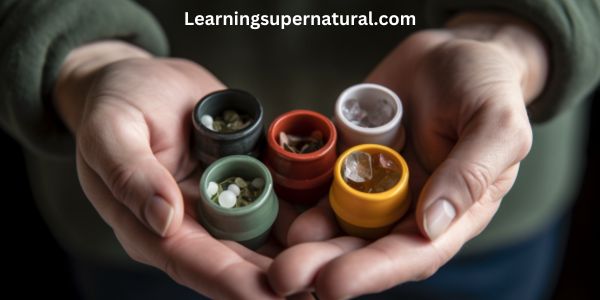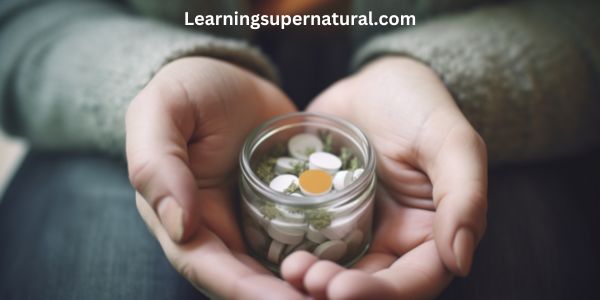Homeopathy is an alternative medical practice that has been used for centuries to treat various ailments.

It relies on the principle of ‘like cures like,’ meaning a substance that can cause symptoms in healthy people can also be used to heal those same symptoms in sick individuals.
In this article, we’ll discuss what homeopathy is, how it works, and why it’s gaining popularity as an effective healing method.
Homeopathic treatment involves administering dilute doses of natural substances such as plants or minerals to stimulate the body’s self-healing abilities.
This holistic approach is designed to address physical, mental, and emotional health issues without causing any adverse side effects.
While some skeptics still doubt its effectiveness, many studies have shown positive results when using homeopathy for healing purposes.
We’ll look at these findings and explore why more people are turning to this gentle form of medicine for relief from their maladies.
What Is Homeopathy?
Homeopathy is a form of holistic medicine that has been used for centuries to treat illness and promote health. It embraces the idea that the body, mind, and spirit are all interconnected, which guides its approach to healing using herbal remedies.
Homeopathy considers an individual’s history, lifestyle habits, emotional state, and physical symptoms to create comprehensive treatment plans tailored specifically to each patient.
It seeks to stimulate the body’s natural ability to heal itself by restoring balance through gentle yet effective treatments like herbal remedies.
Homeopathy encourages individuals to take responsibility for their health while providing them with safe and non-invasive methods of addressing both current issues as well as underlying causes.
Rather than simply treating symptoms on the surface level, homeopathy looks at the root cause of ailments to provide more lasting relief.
With this deeper understanding of one’s condition comes greater insight into how best to address it—transitioning us now toward learning about how homeopathy works.
How Does Homeopathy Work?

Homeopathy is a natural form of healing that has been used since the 1700s. It uses small doses of substances, such as herbs and minerals, to trigger the body’s own healing processes. Homeopathic remedies are known for their low risk of side effects, making them an attractive option for those looking for natural remedies.
The underlying principle behind homeopathy is that ‘like cures like’; in other words, if a substance causes symptoms in large doses, it can be used in smaller amounts to treat those same symptoms.
This concept has led some skeptics to suggest that homeopathic remedies work only through the placebo effect – but research suggests this may not be true. In fact, studies have found both physiological and psychological benefits associated with using homeopathic treatments.
Now, let’s explore the potential benefits of homeopathy further.
Benefits Of Homeopathy
Homeopathy has long been touted as an effective alternative medicine, and for good reason. It can greatly supplement traditional treatment plans that help people feel their best.
As the saying goes, “An ounce of prevention is worth a pound of cure” – homeopathy encourages preventive care with herbal remedies and natural strategies for maintaining health.
In addition to its preventative benefits, studies have shown that homeopathic treatments may also provide relief from acute illnesses such as colds and flu without the side effects associated with conventional medicines.
For those looking to take more control over their own well-being, homeopathy offers many options ranging from dietary changes to energy healing techniques.
With so much potential available through this centuries-old practice, it’s no wonder it continues gaining traction in modern society.
Given all these advantages, it makes sense to explore what evidence exists regarding the efficacy of homeopathy. When evaluating any healthcare option, we must consider how well it works and if there are any risks involved in taking it.
Understanding both sides of the equation will allow us to make informed decisions about our health and wellness journey. Thus, let’s dive into researching homeopathy studies and evidence now!
Homeopathy Studies And Evidence
Homeopathy is a form of natural medicine that relies on the use of natural remedies to promote holistic health. It has been used for centuries and is still practiced today, with many people claiming it helps them feel better.
Studies have shown that homeopathic treatments can be effective in treating certain conditions, particularly those related to anxiety or stress. For example, research has found that homeopathically treated patients experienced significant improvement in their symptoms after treatment compared to untreated patients.
However, not all studies have been positive – some suggest that homeopathy may not be as beneficial as originally claimed. While further research is needed on this topic, there is no denying the potential benefits of using homeopathy as an alternative form of healing.
Homeopathic medicines are generally safe when taken according to instructions, so they can be a viable option for those looking for an alternative approach to improving their well-being. Moving forward, understanding how best to utilize homeopathy for healing will require more evidence-based research on its effectiveness.
Using Homeopathy For Healing

Homeopathy is a holistic approach to healing, considering an individual’s physical, mental, and emotional well-being.
Homeopathic treatment relies on natural remedies derived from plants, animals, or minerals in order to treat ailments.
It works by stimulating the body’s natural ability to heal itself without causing any side effects.
The idea behind homeopathy is that “like cures like”—that is, if a substance can cause certain symptoms, it may also be used to cure them.
Research has shown that homeopathic medicines are effective for treating chronic conditions such as headaches and digestive disorders.
Additionally, studies have found that homeopathy can help with anxiety and depression management by reducing stress levels through lifestyle changes.
Furthermore, many people report feeling better after being treated with homeopathic medicines due to their gentle nature and lack of unwanted side effects compared to traditional medicine.
In short, when seeking natural healing methods, try giving homeopathy – you might find relief for your condition!
Frequently Asked Questions (FAQs)
Who Is Qualified To Practice Homeopathy?
Homeopathy is an alternative form of medicine that has been practiced for over 200 years. Many people seek out homeopathic practitioners to help them heal from a variety of ailments, but who exactly is qualified to practice it?
There are currently more than 400,000 certified homeopaths worldwide, and the number continues to grow due to its increasing popularity. To gain certification as a homeopath, they must have knowledge of evidence-based research and meet certain licensing requirements in their respective countries.
It’s important to note that while anyone can call themselves a ‘homeopath,’ only those with proper certification can be considered professional practitioners.
Are There Any Potential Side Effects To Homeopathic Treatments?
When it comes to homeopathic treatments, it’s important to consider potential side effects.
While there is evidence that some remedies can provide relief from mild symptoms without any safety concerns, taking precautions and discussing with a qualified practitioner is always recommended.
It’s also important to make sure the remedy you are using is backed by evidence-based research.
When in doubt about which treatment option might be best for your situation, consult a professional who specializes in homeopathy.
What Is The Cost Of Homeopathic Remedies?
When it comes to the cost of homeopathic remedies, there are a few things you should consider.
Homeopathy is generally considered cost-effective when compared to traditional treatments for similar ailments.
However, insurance coverage for these alternatives can vary depending on your provider and plan.
Additionally, different practitioners may have varying costs associated with their services, which could also impact the overall expense.
Can Homeopathy Be Used Alongside Conventional Medicine?
Like a river weaving its way through a winding countryside, homeopathy can be used alongside conventional medicine to provide an alternative approach to healing.
This holistic remedy is becoming increasingly popular as people look for natural ways to treat their ailments without the risk of harsh side effects from traditional treatments.
Homeopathic remedies often involve herbal or mineral ingredients and are tailored to fit an individual’s unique needs in order for them to get the most out of the treatment.
By considering both conventional medical practices and alternative remedies, patients can benefit from a comprehensive approach that considers their body’s entire health picture.
How Long Does It Take To See Results From Homeopathy?
When it comes to how long it takes to see results from homeopathy, the answer can vary.
Generally speaking, people often experience symptom relief within a few days or weeks of starting treatment and then continue to observe improvement in their overall health as part of the healing process.
Depending on the severity of your condition, it may take anywhere from several months to even years for you to fully benefit from homeopathic remedies.
Conclusion
Homeopathy can be a great way to heal your body holistically. It’s definitely worth looking into if you’re interested in exploring alternative treatments!
However, make sure that the practitioner is qualified and has experience with homeopathic remedies before trying it out. Remember to discuss any potential side effects or contraindications with your doctor before beginning treatment.
Ultimately, it takes patience when starting any new healing journey – but there’s no doubt that homeopathy could help bring balance back into your life.
With its ability to treat multiple conditions at once and relieve symptoms without harsh medications, why not try this ancient practice?
After all, as they say: ‘Nothing ventured, nothing gained.’




